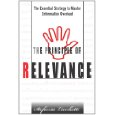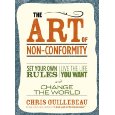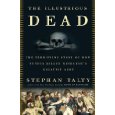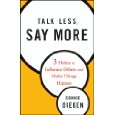 One of the axioms that guides new ministry is the one from LifeChurch Pastor Craig Groeschel, who says:
One of the axioms that guides new ministry is the one from LifeChurch Pastor Craig Groeschel, who says:
If you want to reach people you’re not currently reaching you’re going to have to do things you’re not currently doing.
In other words, if we continue doing this through the same way, we will continue getting the same results. If we desire to get different results then we will have to do ministry different than we're doing it right now.
Here's where the tension comes when you design anything new there will people be people that do not understand nor agreed with the course of action you choose to take. The tension is this, we are pressed to choose between relationships and the risk of the new vision.
Not everyone is designed to be a risk taker. And at the same time. Relationships are vital and important. So the tension becomes creating new ministry platforms will put you a direct odds with these valuable and vital relationships.
The choice then becomes between two very, very good things and how are you to decide that is one of the dilemmas of leadership so choose wisely and choose well.
So, one of the requirements of leadership is to place the correct people into the team, whose DNA can allow for change and creativity. Having that firmly established in the culture of the organization will allow you to grow and adapt without holding the team relationally hostage.
Even with safeguards in place you can never completely eliminate the tension between the two. Following Christ is and remains a step of faith and so there will always be a certain stepping out process that will be required.
 Missions partnerships are evolving. Just a few decaded ago it used to be summed up: Pray, pay, and go away.
Missions partnerships are evolving. Just a few decaded ago it used to be summed up: Pray, pay, and go away.
Following the expansion of affordable travel, widespread information via the internet, affluence of society - they have all lead to a shift in thinking. Participation has taken on a new dimension and both missionaries and supporters will need to adjust.
A new generation is now viewing hands-on missions participation not so much as a monthly financial gifting, but rather a one-time project to be supported or a short term missions trip. That leads to a couple of things to consider.
Career missionaries are going to scramble to adjust to a new support base. Possibly a missionary should consider moving from a monthly to an annual support base in order to weather the monthly fluctuation. Additionally, involvement of short-term teams will provide additional exposure. Yes, it will be an additional work load, but the investment by the host missionary will potentially reap short and longterm results.
It appears that a new form of vacation is being created: Missional tourism - a combination of ministry and sightseeing. That market is going to require additional adjustments to life as missionaries know it.
Adjust or become extinct.
Incarnational missions. Hotly contested in blogosphere at present. Let's discuss it.
This is basically a view in the strategy of cross-cultural evangelism where the driving force is your Christology. With incarnational missions the fact of leaving your home, volutarily restricting your freedom, deciding to serve others, adopting and adapting to a new and foreign culture, living as a jew to the jew, as one without the law to those without the law...
This is in opposition to the command on Israel not to be in corrupting cultures, but rather eradicate them. The separation of those living in obedience and faith to God were reminded to remain separate from dangerous influences.
Christology is and will always be the determining force of missions strategy. Your view of his life and work will shape which side you emphasize. Good and faithful men on both sides are to be found.
Within a humanistic context, within a postmodern and postchristian context, the downside is who influences whom? Being close to unrighteousness, immorality and corruption need not have the last word (ie Daniel), but there is that danger.
The upside is salt being in contact and causing thirst. Without the relational impact in Europe, it is difficult to imagine a platform to be established apart from some adoption of incarnational missions.
While the concept and application of incarnational missions is hotly debated, the missional guru Ed Stetzer weighs in with these words:
"Some will not like the use of the word, but I hope we all agree on what it is we are looking to see the church do: to be in the world, while remaining distinct, with the aim of fulfilling the Great Commission."
If you wonder why your church or church-planting strategy appears as it does, look no further than your theology. A faulty view of Jesus, perception formed not by biblical mandate but rather by personal comfort or preferences will determine everything.
 Under a onslaught of varied tasks and requests, have your ever felt overwhelmed? A term has been coined to convey the widespread condition: Burnout.
Under a onslaught of varied tasks and requests, have your ever felt overwhelmed? A term has been coined to convey the widespread condition: Burnout.
Wikipedia describes it as follows: "Problems related to life-management difficulty".
Further, the Maslach Burnout Inventory uses a three dimensional description of exhaustion, cynicism, and inefficacy.
My latest read has been a book entitled: The Principle of Relevance, by Stefania Lucchetti. Here is what I have been able to glean from the book - making quick sense of information and experiences is a learned skill. Properly organizing everything into thoughts is what changes things from chaos to clarity. It is only when clarity comes that stress is reduced. Makes sense to me.
Here are a couple of excerpts:
Unless a person knows how to give order to his or her thoughts, attention will be attracted to what is most problematic at the moment: thoughts or memories linked to strong emotions, external sources of information, inputs and requests.
Without training, and without an object in the external world that demands attention, people are unable to focus their thoughts for more than a few minutes at a time. This leads to a sense of self-condemnation to notice and process irrelevant stimuli, to attend to everything at once and, as a result, not attend to anything at all.
The five main points towards clarity are these:
- The clarity of purpose - This defines what something is about.
- Situational awareness - Taking in data and excluding the unimportant.
- Pattern discernment - Has this been experienced before?
- Attention - Awareness of specific input.
- Self-Knowledge - Working within your own limitations.
Possibly you are one receives inspiration by what others are reading. If that is the case, I'll let you look over my shoulder and see what engages me at present.
The first three books are what I read in August. The last three are what I have started and presently hold my attention.
| Getting things done: The Art of Stress-Free Productivity, David Allen |  |
| Idea Mann: A Memoir by the Cofounder of Microsoft, Paul Allen |  |
| The Art of Non-Conformity,Chris Guillebeau |  |
| This Illustrious Dead: The Terrifying Story of How Typhus Killed Napolean's great Army, Stephan Talty |  |
| The Principle of Relevance, Stefania Lucchetti |  |
| You might be a Zombie. (Don't know if I can finish this one, the language is pretty foul. But the content is funny.) |  |
| Talk Less, Say more, Connie Dieken |  |
Page 35 of 52